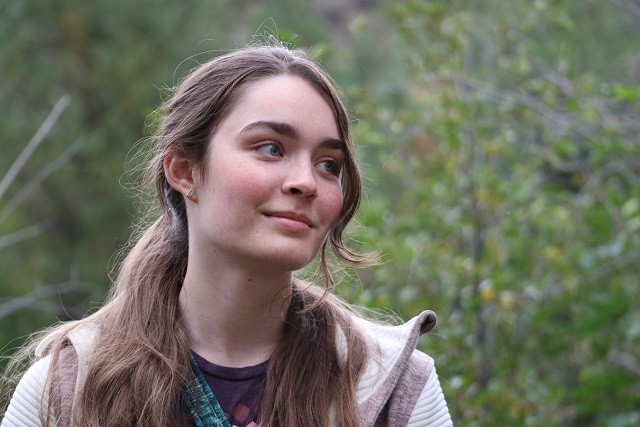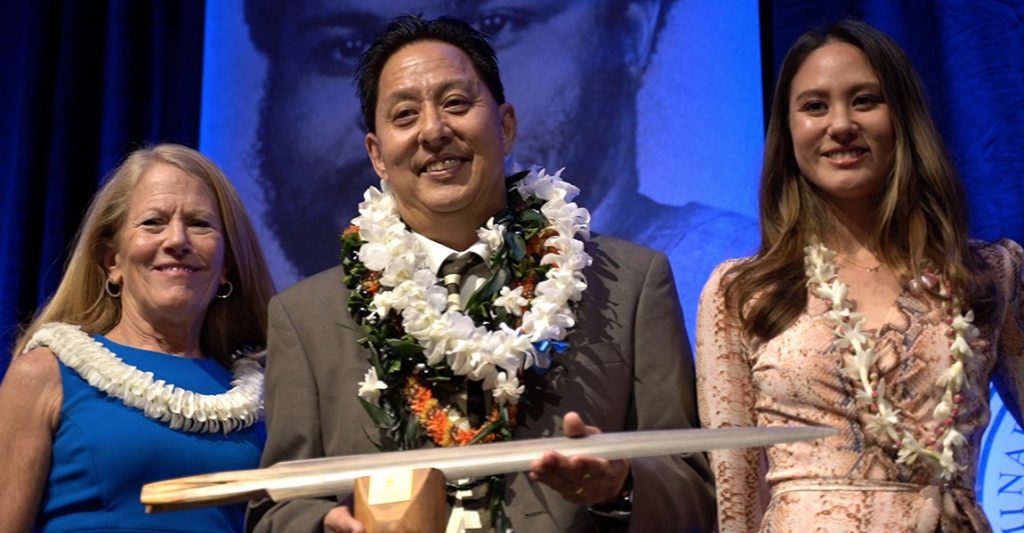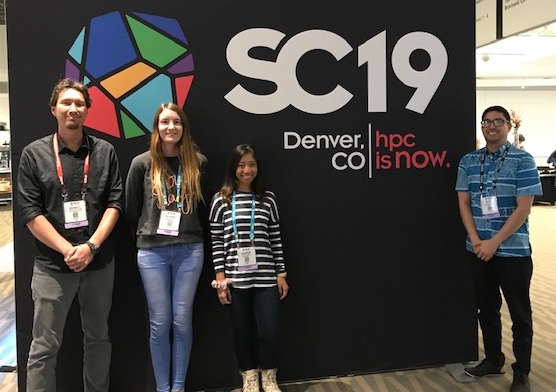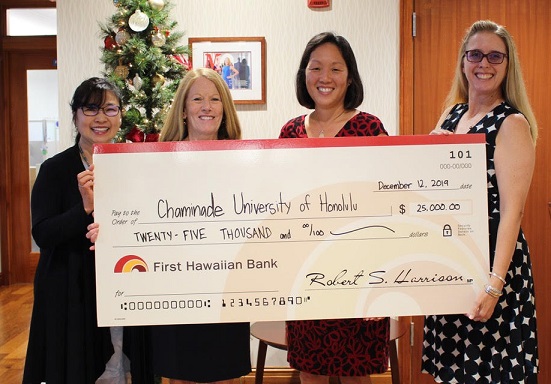Every year, students in Chaminade’s Senior Commercial Design dream up a major project to execute.
And this year, they wanted to design a boutique hotel.

Dr. Elizabeth Lockard, associate professor of Environmental + Interior Design, was on board with the idea. But she also threw in a few curve balls. She required that the hotel be situated in a cold climate, where students would have to insulate for below freezing temperatures and strong winter storms. She also said the students would need to use the metric system.
The stipulations were meant to be especially challenging to a class studying in oh-so-balmy Hawaii.
That’s why, Lockard said, a central component of the design class is to visit a destination where their project could be centered. The idea: allow students to see firsthand how a given environment can be incorporated into their final design.
To meet Lockard’s requirements, the group settled on Vancouver and started raising funds to make the trip.

And last month, four seniors and Lockard jetted off to the city for some invaluable hands-on research.
From February 6 to 9, they walked the city, visiting art galleries, trekking up Grouse Mountain and touring hotels and a proposed project site.
They walked away knowing so much more about cold climate design than a book or a lecture could ever tell them, Lockard said, allowing them to understand a place “viscerally as well as intellectually.”
“It allowed them to internalize their knowledge in a way that it could not happen in the classroom alone,” she said.
Allisen Caberto, who hopes to graduate in May, said the real-world exercise was rich with “ah-ha! moments.”
“Rather than role-play hypothetically, you get to become part of the lesson,” she said.
Caberto added the trip also hammered home for her how vital it is to consider sustainability in a final design project. “Whatever we build and create has an impact on it, and so as designers who have a larger influence on building designs, we should try to build consciously and harmoniously with the natural environment to help reduce human footprint,” she said.

“And from visiting Vancouver, it is visibly clear they keep the natural environment in mind and embrace the outdoors.”
Senior Elyssa Shirai also took the trip and said it left her “inspired.”
“Not only are you seeing a place that isn’t like Hawaii but also to take in the lifestyle of the people who live there, the amazing sceneries and different landscapes of that place,” she said. “There were many special moments on this trip.”
Lockard said one of the major takeaways for students is that interior design is a practical field that requires hands-on learning. She noted that details like pedestrian or vehicular traffic patterns can have a significant impact on a design and can’t be discerned solely by looking at a map.
The trip allowed the seniors to “internalize” their knowledge, she said.
That kind of transformational experience “could not happen in the classroom alone,” Lockard said.











